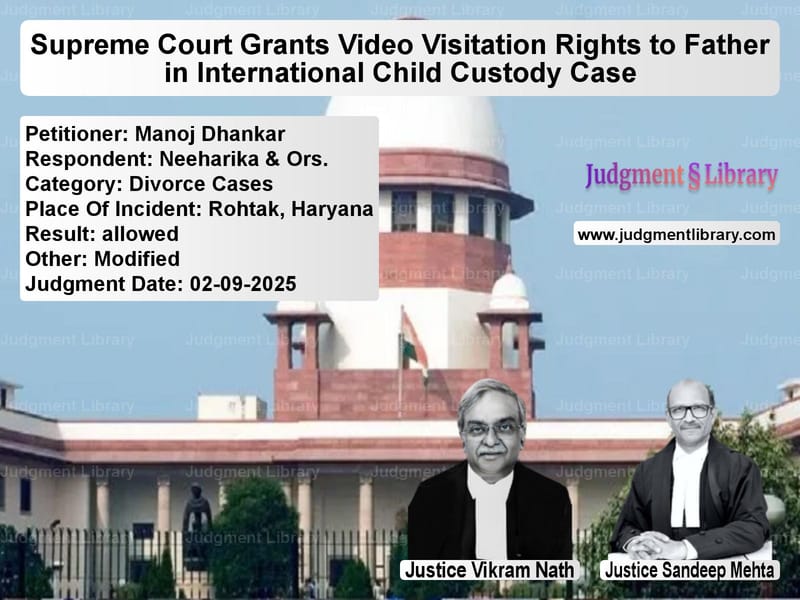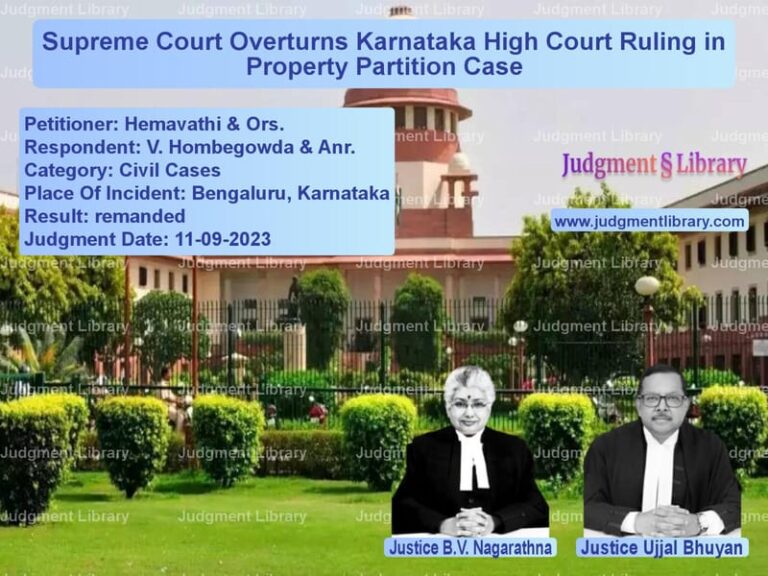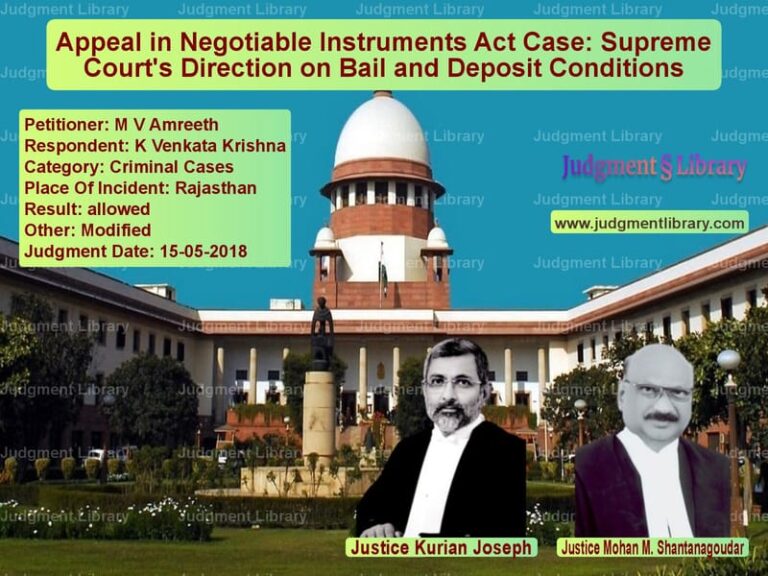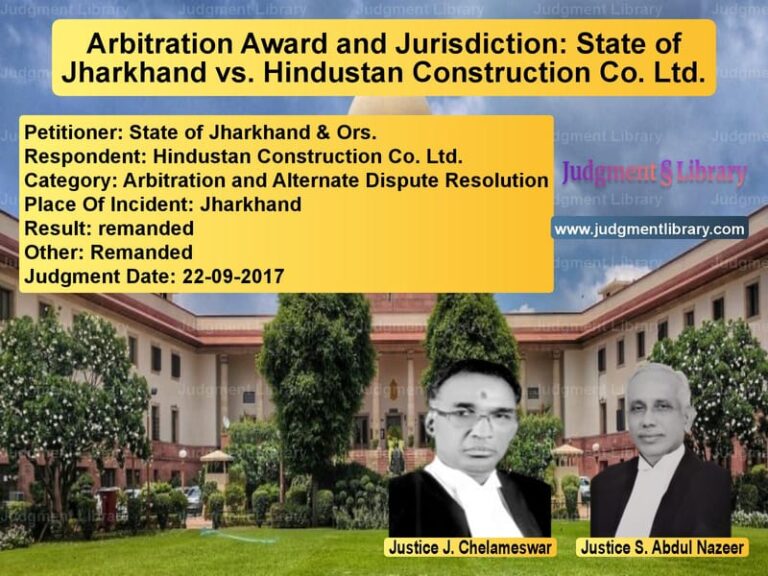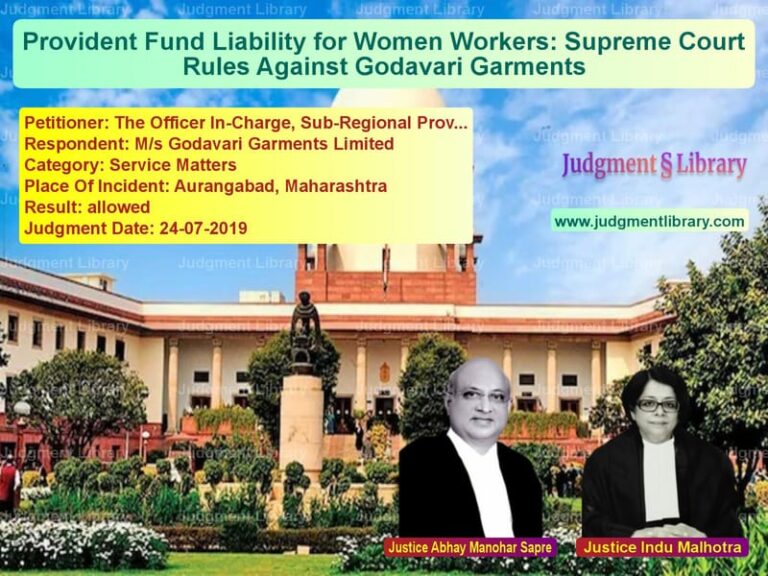Supreme Court Grants Video Visitation Rights to Father in International Child Custody Case
In a heartening judgment that prioritizes child welfare over parental conflict, the Supreme Court of India has granted video conferencing visitation rights to a father separated from his young son who now lives with his mother in Ireland. The judgment, delivered on September 2, 2025, by a bench comprising Justices Vikram Nath and Sandeep Mehta, demonstrates the judiciary’s evolving approach to modern family disputes in an increasingly globalized world. The case of Manoj Dhankar versus Neeharika & Others represents a poignant example of how courts are adapting traditional custody arrangements to accommodate the realities of international relocation while ensuring that children maintain meaningful relationships with both parents.
The dispute has its roots in a marriage solemnized on November 26, 2012, between Manoj Dhankar and Neeharika. Their son was born on January 18, 2016, but the marriage soon ran into trouble. In 2017, the mother left the matrimonial home and subsequently filed for divorce under the Hindu Marriage Act. The father responded by initiating custody proceedings before the Family Court in 2018. The Family Court, in its order dated March 19, 2019, granted the father limited visitation rights, permitting him to meet the child twice a month at the child’s school.
The parties attempted to resolve their differences through a settlement when the mother expressed her intention to travel to Ireland. They jointly filed for divorce by mutual consent and recorded their first motion under Section 13-B of the Hindu Marriage Act on August 28, 2019, along with an agreement regarding child custody. However, this compromise eventually fell through, and the mutual consent petition was withdrawn. The father then instituted a petition under Section 25 of the Guardians and Wards Act, 1890, seeking custody of his son.
By an interim order dated February 3, 2022, the Family Court granted the appellant custody every Saturday and Sunday, subject to the condition that the child would not be taken out of Rohtak, Haryana. However, in its final order dated March 27, 2023, the Family Court dismissed the father’s petition on the ground that he had violated the terms of the interim custody arrangement. The father challenged this decision before the Punjab and Haryana High Court in FAO No. 2655 of 2023.
During the pendency of this appeal, a significant development occurred – the mother took the child to Ireland. The father then filed several applications before the High Court, including one seeking disclosure of the child’s travel itinerary, which he later withdrew, and another seeking arrangement of video interaction with the child and his return from Ireland to India. The High Court, by order dated July 25, 2023, issued notice only to the extent of disclosure of the child’s itinerary. When the father challenged this order before the Supreme Court, his Special Leave Petition was dismissed. He then pursued an application for early hearing of his main appeal before the High Court.
The High Court, by its impugned order dated October 4, 2024, dismissed the father’s appeal. The court relied on the Supreme Court’s dismissal of the earlier Special Leave Petition, noted the appellant’s breach of the Family Court’s interim custody arrangement, and held that the child had been living with the mother since August 18, 2017, with no material placed to show that she was incapable of caring for the child. Aggrieved by this decision, the father approached the Supreme Court once again, but this time with a significantly modified request.
Before the Supreme Court, the appellant’s senior counsel made a pragmatic decision to press the appeal only to the extent of securing visitation rights through video conferencing. This shift in strategy reflected the practical reality that the child was now settled in Ireland with his mother, and seeking physical custody or visitation would be impractical and potentially disruptive to the child’s stability.
The Supreme Court, in its characteristically child-centric approach, recognized the sensitivity of the matter. The Court observed that “the present matter is sensitive because it concerns the future of a young child. When such disputes arise, the central question is not who is right or wrong as between the parents, but what arrangement will best serve the child. The emotional, mental, and physical well-being of the child must always come first.” This statement encapsulates the modern judicial philosophy in custody matters – that the child’s welfare is the paramount consideration, transcending the rights and wrongs of parental conduct.
The Court did not shy away from acknowledging the imperfections in both parents’ conduct, noting that “the conduct of both parents has not been ideal. Their personal differences have grown into a long and bitter conflict. However, the Court cannot allow the child to become a casualty of this conflict. What matters most is that the child grows up in an atmosphere where he feels secure, loved, and cared for.” This balanced approach, refusing to take sides in the parental conflict while firmly centering the child’s needs, demonstrates the maturity and wisdom that family disputes require.
The Court recognized the current reality that “at present, the child is living with his mother in Ireland and seems to be settled there. It would not be in his interest to disturb that arrangement at this stage.” This acknowledgment of the child’s settled environment reflects the judiciary’s understanding that stability and continuity are crucial for a child’s healthy development, even when it means accepting that one parent has primary physical custody in a foreign country.
The Court found the father’s limited request for video interaction to be “both fair and necessary.” In one of the most significant observations of the judgment, the Court emphasized that “Every child has a right to the affection of both parents. Even if parents live apart or in different countries, it is important for the child to maintain a relationship with both of them. Denying such contact would deprive the child of the love, guidance, and emotional support of the father.” This statement affirms the fundamental principle that children have a right to maintain relationships with both parents, regardless of geographical separation or parental conflict.
The Court’s reasoning demonstrates a sophisticated understanding of modern family dynamics and technological solutions. By approving video conferencing as a means of maintaining parent-child relationships across international borders, the judiciary has embraced technology as a tool for preserving family bonds in an increasingly mobile world. The Court noted that the requested video interaction “balances the reality of the child’s present living situation with the need to ensure that the father remains a part of the child’s life.”
The Supreme Court accordingly directed specific arrangements: “The appellant shall be entitled to interact with his son through video-conferencing for two hours on every alternate Sunday from 10.00 AM to 12 noon (Ireland time).” The Court further mandated that “Both parties shall cooperate to ensure that the arrangement is carried out smoothly, in good faith, without obstruction or hostility.” Recognizing potential practical challenges, the Court added that “Any technical or logistical difficulties in arranging the video sessions shall be resolved mutually, keeping in mind that the interest of the child is paramount.”
This judgment represents a significant step forward in Indian family law jurisprudence. It acknowledges that in an era of global mobility, traditional custody and visitation arrangements may need to be adapted to accommodate international relocations. By granting video conferencing rights, the Court has provided a practical solution that serves the child’s best interests while respecting the reality of the family’s circumstances.
The decision also sends an important message to separated parents – that their personal conflicts should not deprive their children of meaningful relationships with both parents. The Court’s emphasis on cooperation and good faith in implementing the video visitation arrangement underscores the ongoing parental responsibility to prioritize children’s needs over personal grievances.
This judgment will likely serve as an important precedent for future cases involving international child custody disputes, providing a framework for balancing children’s need for stability with their right to maintain relationships with both parents, regardless of geographical distance.
Petitioner Name: Manoj Dhankar.Respondent Name: Neeharika & Ors..Judgment By: Justice Vikram Nath, Justice Sandeep Mehta.Place Of Incident: Rohtak, Haryana.Judgment Date: 02-09-2025.Result: allowed.
Don’t miss out on the full details! Download the complete judgment in PDF format below and gain valuable insights instantly!
Download Judgment: manoj-dhankar-vs-neeharika-&-ors.-supreme-court-of-india-judgment-dated-02-09-2025.pdf
Directly Download Judgment: Directly download this Judgment
See all petitions in Child Custody
See all petitions in Mutual Consent Divorce
See all petitions in Alimony and Maintenance
See all petitions in Domestic Violence
See all petitions in Property Division in Divorce Cases
See all petitions in Judgment by Vikram Nath
See all petitions in Judgment by Sandeep Mehta
See all petitions in allowed
See all petitions in Modified
See all petitions in supreme court of India judgments September 2025
See all petitions in 2025 judgments
See all posts in Divorce Cases Category
See all allowed petitions in Divorce Cases Category
See all Dismissed petitions in Divorce Cases Category
See all partially allowed petitions in Divorce Cases Category

